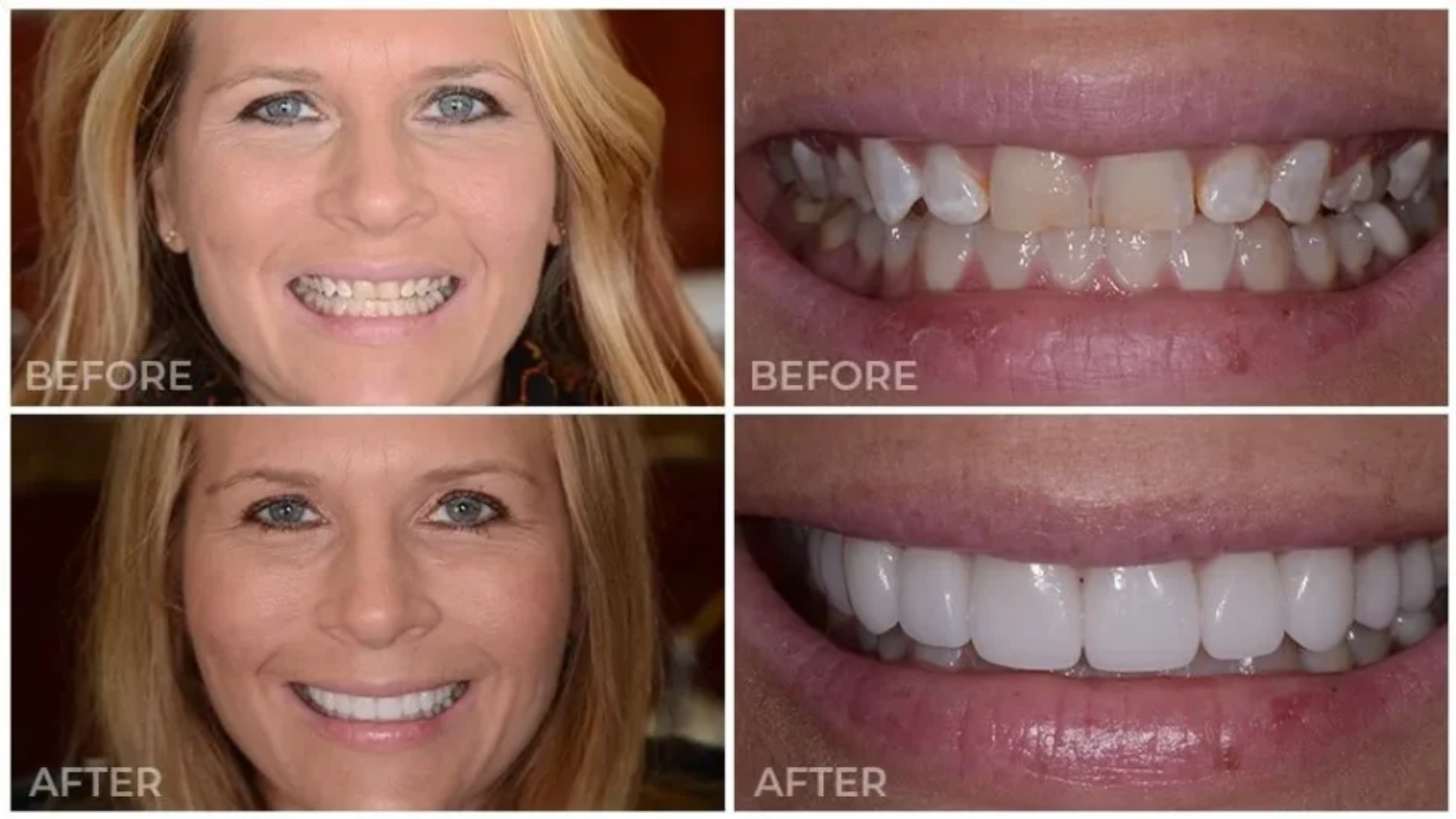Porcelain veneers are widely known for transforming smiles, but their impact extends beyond aesthetics. By covering imperfections, these cosmetic veneers not only enhance appearance but also provide added protection for natural teeth. Knowing how porcelain veneers impact oral health helps patients view them as both a cosmetic and functional solution for dental well-being.
How Porcelain Veneers Work
Porcelain veneers are ultra-thin shells of ceramic material that bond directly to the front surface of your teeth. The process begins with removing a small amount of natural tooth enamel to create space for the veneer. Your dentist then takes impressions to create custom-fitted veneers that perfectly match your teeth.
The bonding process uses strong dental cement to permanently attach each veneer to your tooth structure. This creates a unified surface that looks and functions like your natural teeth. The porcelain material closely mimics the light-reflecting properties of tooth enamel, making it virtually indistinguishable from surrounding teeth.
Aesthetic and Functional Benefits
Cosmetic veneers address multiple dental concerns simultaneously. They can correct gapped teeth, minor misalignment, and irregularities in tooth size or shape. These dental veneers also cover permanent staining that cannot be improved through teeth whitening procedures.
The functional benefits extend beyond appearance. Veneers can restore proper bite alignment and improve chewing efficiency. They provide a smooth surface that feels natural when speaking and eating. The custom design process allows your dentist to create optimal tooth proportions that enhance both form and dental function.
Oral Health Advantages
Teeth veneers primarily improve oral health by protecting damaged teeth from further decay and infection. The porcelain material creates a strong, protective layer over weakened or chipped enamel. This barrier helps prevent bacteria from accessing vulnerable areas of your tooth structure.
Porcelain also offers excellent stain resistance compared to natural tooth enamel. This property helps maintain better oral hygiene by reducing surface buildup of plaque and bacteria. The smooth surface of veneers makes daily brushing and flossing more effective at removing harmful deposits.
Veneers can also improve self-esteem and confidence, which often leads to better oral care habits. People who are satisfied with their smiles tend to be more consistent with their dental hygiene routines. This psychological benefit contributes to long-term improvements in oral health.
Practical Assessments Before Choosing Veneers
Several factors require careful assessment before proceeding with porcelain veneers. The treatment requires removing some natural enamel, which is irreversible. This enamel removal can increase tooth sensitivity, particularly to hot and cold temperatures.
Good oral hygiene practices become fundamental for veneer longevity. Regular brushing, flossing, and professional dental cleanings help prevent decay around the veneer restoration. Poor oral care can lead to problems at the veneer margins, where bacteria can accumulate. The time commitment also deserves some review. Veneers require multiple appointments and represent. Discussing these factors with your dentist helps make sure veneers align with your long-term oral health goals.
Schedule a Porcelain Veneers Consultation Today
Porcelain veneers offer substantial benefits for both oral health and aesthetics. They protect damaged teeth while improving function and appearance. Schedule a consultation with a qualified cosmetic dentist to determine whether cosmetic veneers are the right choice for your specific needs and oral health goals.

